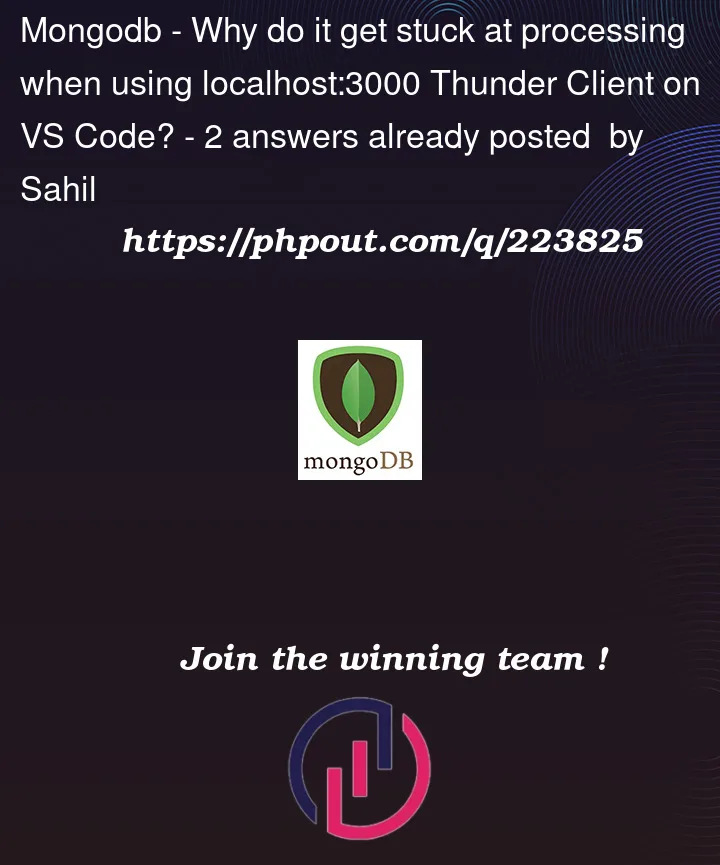I am new to backend and i was following codewithharry react js course. I did the same as he did but when i use to get request in thunderclient it gets stuck in processing. But when i use the link in chrome browser it works fine.
can anyone help me?
my codes are:
index.js:
const connectDB = require('./db');
connectDB();
const express = require('express')
const app = express()
const port = 3000
app.use(express.json())
//Available routes
app.use('/api/auth', require('./routes/auth'))
app.use('/api/notes', require('./routes/notes'))
app.get('/', (req, res) => {
res.send('Hello World!')
})
app.listen(port, () => {
console.log(`Example app listening at http://localhost:${port}`)
})
db.js:
const mongoose = require('mongoose');
const mongoURI = "mongodb://127.0.0.1:27017/inotebookdb"
const connectDB = async () => {
try {
await mongoose.connect(mongoURI, { useNewUrlParser: true, useUnifiedTopology: true });
console.log("successfully connected");
} catch (err) {
console.log(err);
}
}
module.exports = connectDB;




2
Answers
Your code looks right, yet there’s one improvement you can make: Move the app.listen call inside the connectDB capability to guarantee that the server begins solely after the information base association is effectively settled.
update code :
index.js file:
db.js
In this rendition, the connectDB capability returns a commitment, permitting you to utilize .then, at that point() and .catch() while calling it in index.js. This guarantees that the server will just beginning tuning in after the data set association is laid out effectively.
Furthermore, I’ve added some blunder taking care of in the data set association process, so you’ll see a message on the off chance that there’s an issue interfacing with the data set.
Make sure to introduce the necessary conditions, like express, mongoose, and some other conditions you could have utilized in your courses and models. You can introduce them utilizing npm or yarn:
With these changes, your backend ought to work accurately, and you ought to have the option to utilize ThunderClient or some other Programming interface client to make demands without stalling out in handling.
Hi There is bug in VS Code
1.81.0. Downgrade to version1.80.2More details here
https://github.com/rangav/thunder-client-support/issues/1251#issuecomment-1666439365